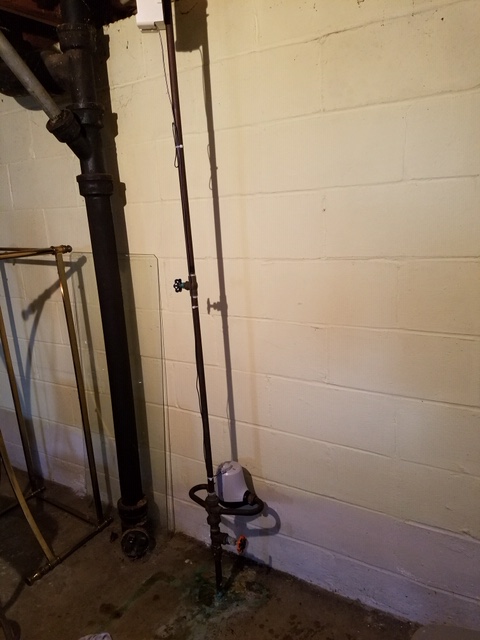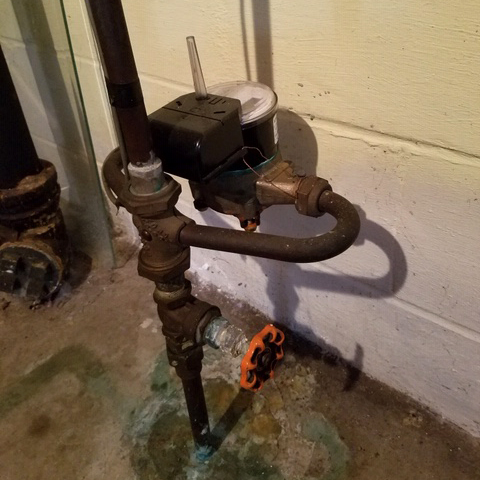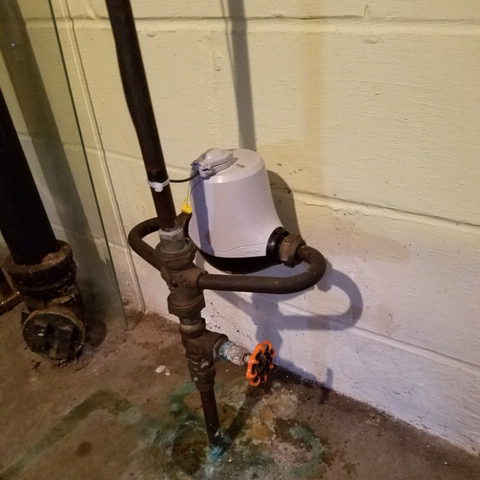Utility Project FAQs
Water Meter Replacement
Water meters are necessary to determine how much water is being used by residents and businesses. City water meters were last replaced in 2006 and are currently reaching the end of their life cycle. With new water meters and new water meter technology the City will be able to operate its water system more efficiently which will also improve customer service. The new water meter system will reduce operational costs and provide more accurate and reliable data.
The existing water meter will be replaced with a new water meter and radio-read device. The radio system will be mounted as high as feasibly possible, near an external wall.


The old water meters will be replaced with a new Sensus water meter and radio read-device. These meters will be read using drive by technology. Sensus is a leader in the utility infrastructure industry and supports the City of Richfield’s commitment to deliver quality services efficiently and cost effectively.
 |
 |
| Existing water meter before replacement | New water meter after replacement |
Water meter replacement started in 2019, with a goal of all water meters replaced by the end of 2023. The City is replacing all water meters throughout Richfield, including residential, commercial and irrigation. A postcard with instructions to set up an appointment will be mailed out closer to the start of replacement in your area.
New water meters will allow for more efficient and advanced leak detection. The system will flag accounts monthly, indicating issues such as a leak or meter malfunction. Additionally, if a customer would like to learn more about their consumption, City staff will be able to provide customers with more recent and accurate data resulting in the ability to modify use and save money.
The new meters are also compatible with WaterSmart, a free program to Richfield residents. WaterSmart allows you to access real-time information on your water use, find ways to reduce consumption, and receive important alerts and notifications targeted directly to your service area. Sign up for WaterSmart today!

The new meters are also compatible with WaterSmart, a free program to Richfield residents. WaterSmart allows you to access real-time information on your water use, find ways to reduce consumption, and receive important alerts and notifications targeted directly to your service area. Sign up for WaterSmart today!


While this is a $4 million+ project, there are no additional charges to residents for the new water meter. Residents will continue to receive water bills quarterly.
Possibly. As water meters age, they become less accurate and may not always measure all of the water running through them. The new meters will likely provide a more accurate record of consumption, so it is possible if your existing meter is failing.
Water meters are typically located in a well room or laundry room in the lower level of a home. If the lower level is fully finished, the meter may be located behind a wall, under the front steps, or in a closet or cabinet area.
Will the radio device interfere with my television, cellphone, Wi-Fi, pacemaker or other technology?
No, the radio read device should not interfere with these or similar devices. The City is currently already using a radio-device to transmit data to read the existing water meters. The radio unit transmits at a very low power for a brief amount of time so it is extremely unlikely interference would occur.
The water meters operate at energy levels that are less than 1/100 of one percent of the RF exposure limit specified by the Federal Communications Commission (FCC). This means that the meter system provides less exposure than television, Wi-Fi, cellphone, computers, laptops, garage door openers, cordless phones, microwave ovens, etc. Click to learn more. Please direct all questions regarding health concerns to the FCC.
Sanitary Lining
During the lining process, sanitary services are temporarily blocked at the main. As a result, high water usage (laundry, dish washing, etc.) must be discontinued by affected properties for approximately 8 hours to avoid sewer backup. Affected homes will receive notice that they are within the project area before relining begins, and will receive notice of service disruptions 24 hours in advance.
Occasionally, residents may observe a "glue-like" odor, which results from a chemical called styrene in the liner resin. While this chemical smell can be an irritant, independent industrial hygienists have found detected amounts to be below health risk levels. The odor dissipates quickly once the curing process is complete. For more information on styrene, please visit https://styrene.org/
To prevent odors from entering a home or business, fill any floor drains and infrequently used sinks with water. This water will fill the bends in the plumbing fixtures (P-traps) and block odors from the sewer. If an odor is already present, cover any basement floor drains and ventilate the affected area by opening windows. The odor dissipates quickly once the curing process is complete. For more information on styrene, please visit https://styrene.org/
 Request Data
Request Data Contacts
Contacts Employees
Employees Language
Language 
